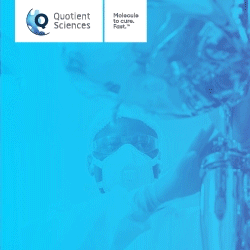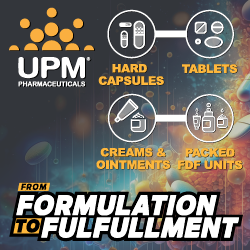Evelo Biosciences, Rutgers University & Robert Wood Johnson University Hospital Announce Submission of IND for Phase 2 Study of EDP1815 in COVID-19 Patients
Evelo Biosciences, Inc., Rutgers University, and Robert Wood Johnson University Hospital recently announced the submission of an Investigational New Drug (IND) application for an Evelo-sponsored Phase 2 clinical study evaluating the safety and efficacy of EDP1815 for the treatment of hospitalized patients with newly diagnosed COVID-19. The study will be led by Reynold A. Panettieri, Jr., MD, Vice Chancellor for Translational Medicine and Science at Rutgers Biomedical and Health Sciences and Professor of Medicine at Rutgers Robert Wood Johnson Medical School.
“Early intervention is essential to help prevent the progression of COVID-19, which, if left untreated, can result in the need for ventilators, intensive care, and in some cases, death,” said Dr. Panettieri. “Our infrastructure at Robert Wood Johnson University Hospital allows us to detect COVID-19 rapidly in patients as they present in the emergency room. Given the tolerability and the modulation of multiple inflammatory cytokines observed in a Phase 1b clinical study of EDP1815, I believe this oral investigational drug may offer benefits to patients at risk of developing severe complications related to COVID-19. We look forward to evaluating EDP1815 in this important trial.”
The Rutgers Institute for Translational Medicine and Science and the New Jersey Alliance for Clinical and Translational Science (NJ ACTS) will conduct the study. EDP1815-205 is a Phase 2 double-blind placebo-controlled study investigating the safety and efficacy of oral EDP1815 in the treatment of hospitalized patients with newly diagnosed COVID-19, age 15 and older. The study will initially evaluate 60 patients to determine whether early intervention with EDP1815 can prevent progression of COVID-19 symptoms and the development of COVID-Related Complications (CRC). Eligible participants will be dosed with EDP1815 or placebo, on top of standard of care, for 14 days. They must have presented at the emergency room within the last 36 hours and tested positive for COVID-19. The primary endpoint is reduced requirements for oxygen therapy, measured by the ratio of oxygen saturation (SpO2)/fraction of inspired oxygen (FiO2). Secondary endpoints include symptom duration, progression along the WHO scale of disease severity, and mortality. Data from the study are expected during the second half of 2020.
“If early intervention with an oral anti-inflammatory agent such as EDP1815 is proven effective, it could help COVID-19 patients before severe complications emerge, mitigating the course of the disease, lessening patient morbidity and mortality, and reducing the demand on hospitals,” said Mark Bodmer, PhD, Chief Scientific Officer at Evelo. “If we see positive data from this Phase 2 study, we plan to move rapidly into Phase 3, with the goal of advancing EDP1815 toward potential registration.”
The progression to severe COVID-19 is associated with hyperinflammation, including cytokine storm. Based on data from a Phase 1b clinical study, EDP1815 has the potential to modulate multiple immune pathways associated with cytokine storm to resolve inflammation without causing complete immunosuppression.
In a Phase 1b clinical study in psoriasis, EDP1815 was observed to blunt the production of multiple inflammatory cytokines, including IL-6, IL-8, TNF, and IL-1b, and was well tolerated with no overall difference from placebo. In preclinical models, EDP1815 has been observed to have effects on Th1, Th2, and Th17 pathways, including TNF, IL-4, IL-5, IL-6, IL-12p40, IL-13, and IL-17. Several of these cytokines have been implicated in the cytokine storm associated with severe complications of COVID-19. In these models, no activity was observed on type 1 interferons, which are important for anti-viral responses.
If EDP1815 is approved for COVID-19, Evelo could rapidly scale its manufacturing to supply the drug at a reasonable cost. Additionally, if this Phase 2 is successful in COVID-19, Evelo plans to investigate EDP1815 as a potential therapy for other diseases such as influenza in which hyperinflammation and cytokine storm play a key role.
Rutgers Institute for Translational Medicine and Science is the academic home for clinical and translational research, infrastructure, and training for Rutgers Biomedical and Health Sciences (RBHS), Rutgers University, and its partner institutions across New Jersey. RBHS takes an integrated approach to educating students, providing clinical care, and conducting research, all with the goal of improving human health. Aligned with Rutgers University–New Brunswick, and collaborating university-wide, RBHS includes eight schools, a behavioral health network and four centers and institutes. RBHS offers an outstanding education in medicine, dentistry, pharmacy, public health, nursing, biomedical research and the full spectrum of allied health careers. RBHS clinical and academic facilities are located throughout the state.
Robert Wood Johnson University Hospital (RWJUH) New Brunswick, an RWJBarnabas Health Facility, is a 600-bed academic medical center that serves as the principal teaching hospital of Rutgers Robert Wood Johnson Medical School and the flagship Cancer Hospital of Rutgers Cancer Institute of New Jersey. Its Centers of Excellence include cardiovascular care from minimally invasive heart surgery to transplantation, cancer care, stroke care, neuroscience, orthopedics, bariatric surgery and women’s and children’s care including The Bristol-Myers Squibb Children’s Hospital at Robert Wood Johnson University Hospital (www.bmsch.org). A Level 1 Trauma Center and the first designated Pediatric Trauma Center in the state, RWJUH’s New Brunswick campus serves as a national resource in its ground-breaking approaches to emergency preparedness.
Evelo Biosciences is a clinical stage biotechnology company developing oral biologics that act on SINTAX, the small intestinal axis, with systemic therapeutic effects. SINTAX plays a central role in governing the immune, metabolic, and neurological systems. The company’s first product candidates are monoclonal microbials, single strains of microbes selected for defined pharmacological properties. Evelo’s therapies have the potential to be effective, safe, and affordable medicines to improve the lives of people with chronic diseases and cancer.
Evelo currently has four product candidates: EDP1815, EDP1867, and EDP2939 for the treatment of inflammatory diseases, and EDP1503 for the treatment of cancer. Evelo is also advancing additional oral biologics through preclinical development in other disease areas. For more information, please visit www.evelobio.com and engage with Evelo on LinkedIn.
Total Page Views: 1422












